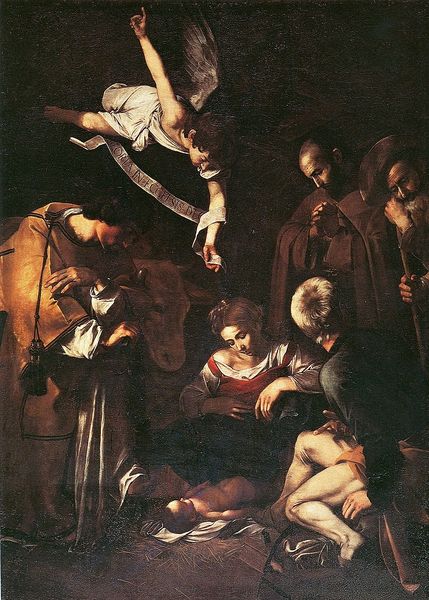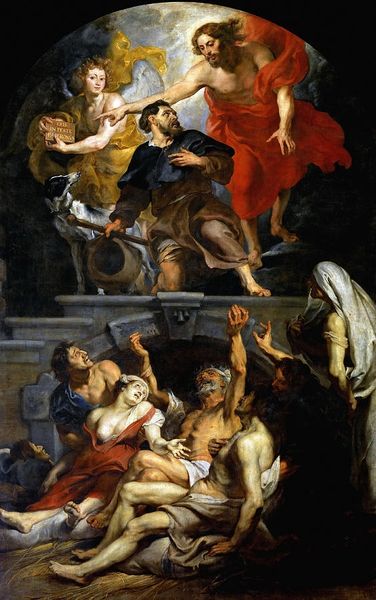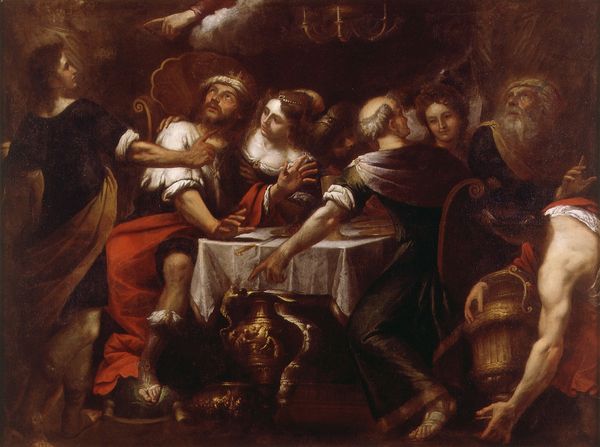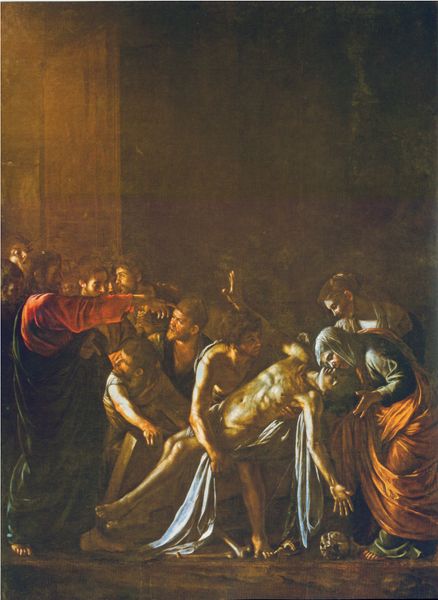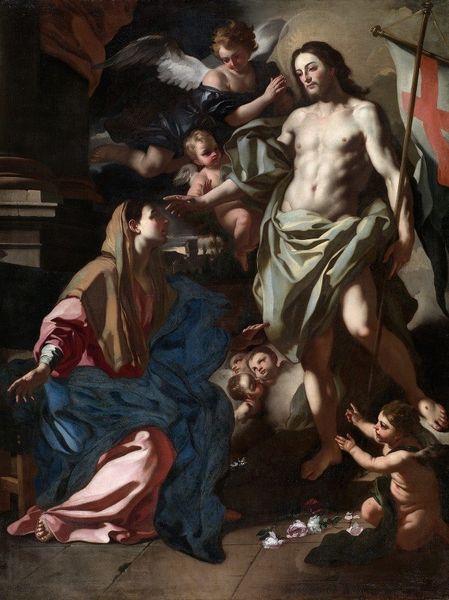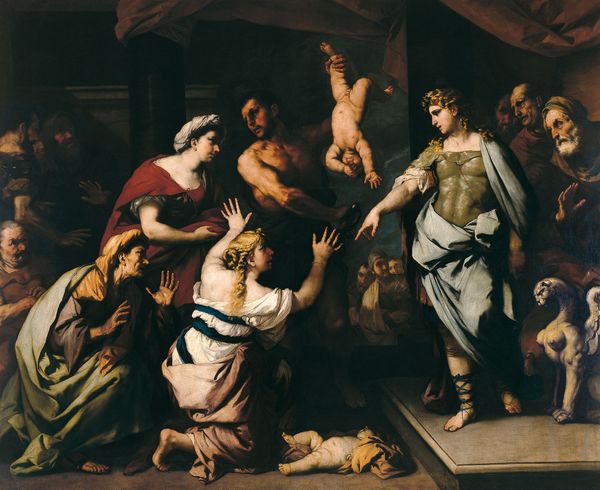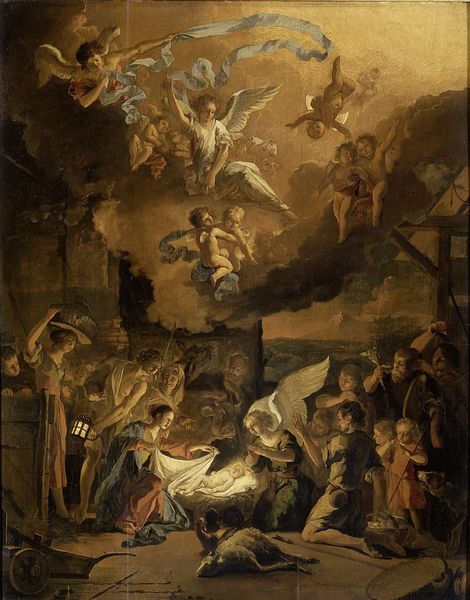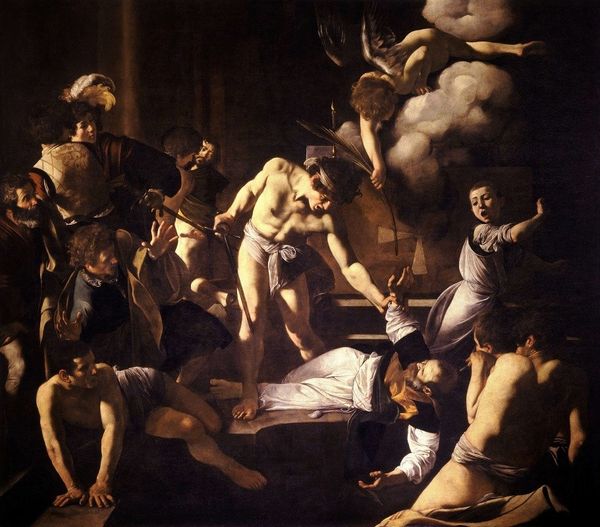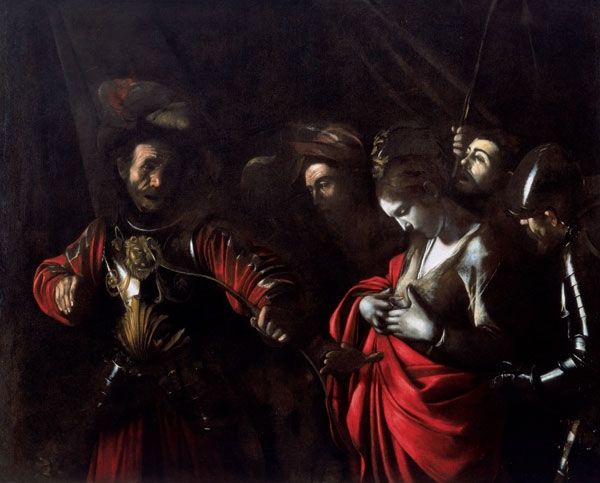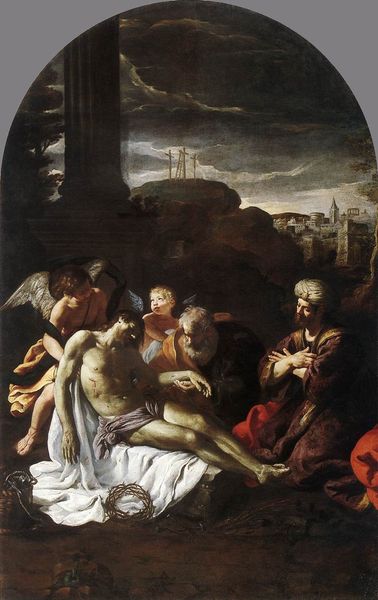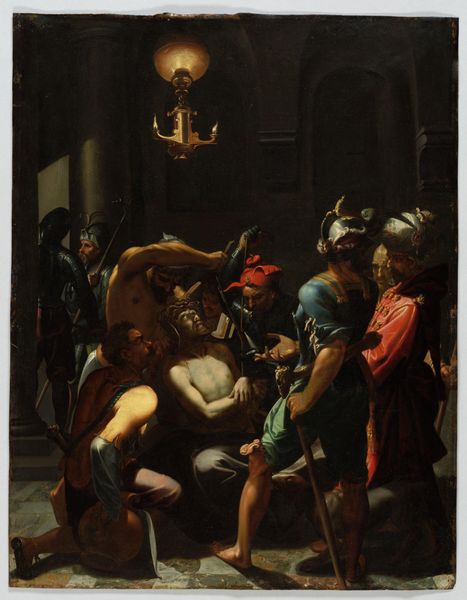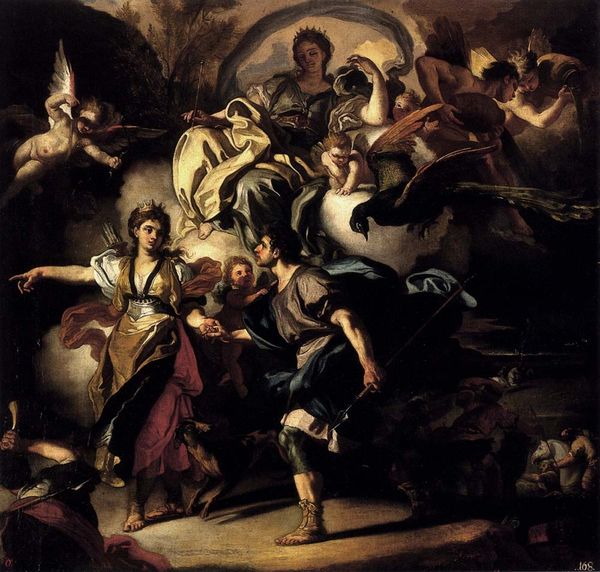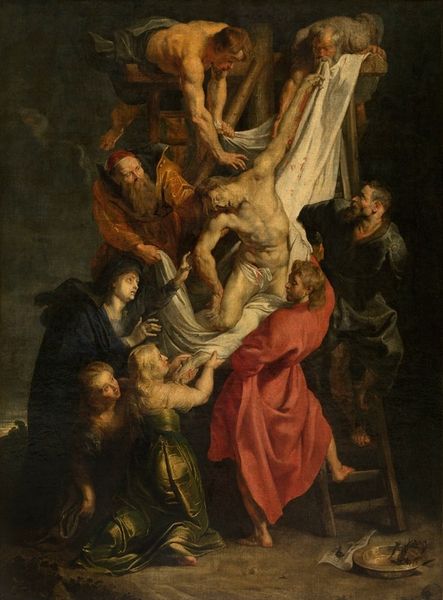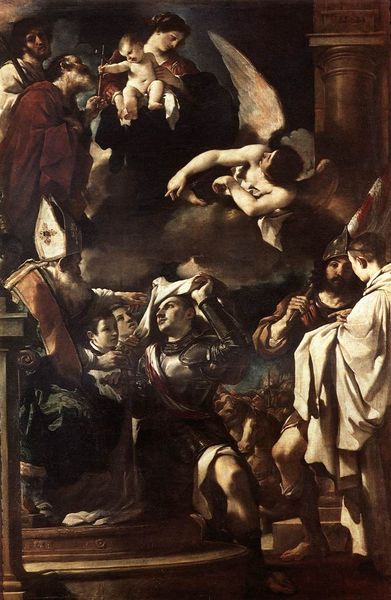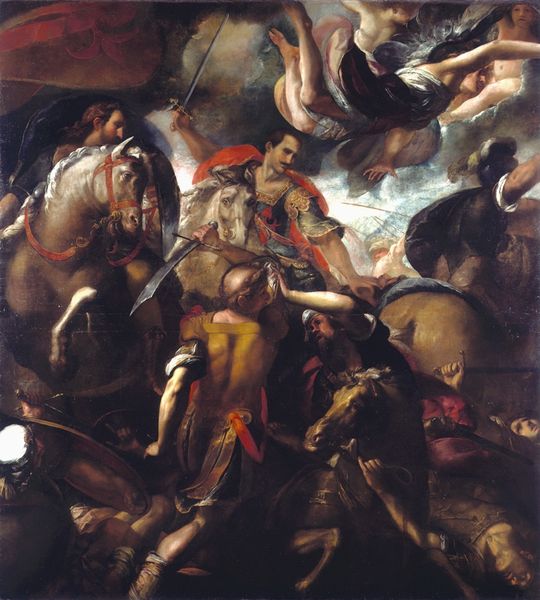
#
allegories
#
allegory
#
baroque
#
figuration
#
oil painting
#
history-painting
#
italian-renaissance
Dimensions: 390 x 260 cm
Copyright: Public domain
Caravaggio painted this large altarpiece with oils in Naples, Italy, in the early 1600s. It combines all seven works of mercy into a single, dramatically lit scene. The painting was commissioned for the church of Pio Monte della Misericordia, a charitable institution in Naples. In his characteristically Baroque style, Caravaggio's painting has a strong sense of realism mixed with tenebrism, using light and shadow for dramatic effect. Consider how the image creates meaning through visual codes, cultural references, and historical associations. Naples in the 17th century was a city marked by stark contrasts between wealth and poverty. The Pio Monte della Misericordia was founded to address some of the pressing social needs of the time, caring for the poor, the sick, and the imprisoned. To fully appreciate the painting, you might delve into the history of charitable organizations in Naples, the social conditions of the time, or the artistic conventions of the Baroque period. The meaning of art is always contingent on social and institutional context.
Comments
No comments
Be the first to comment and join the conversation on the ultimate creative platform.
